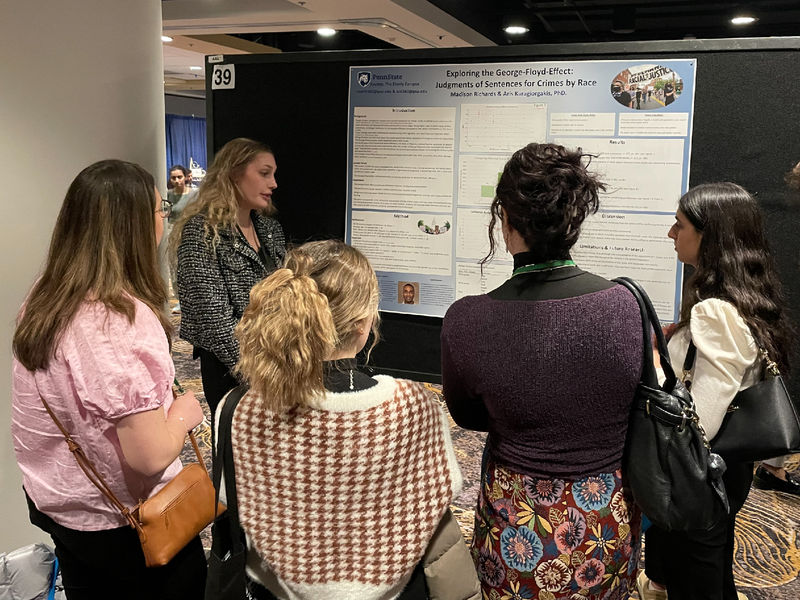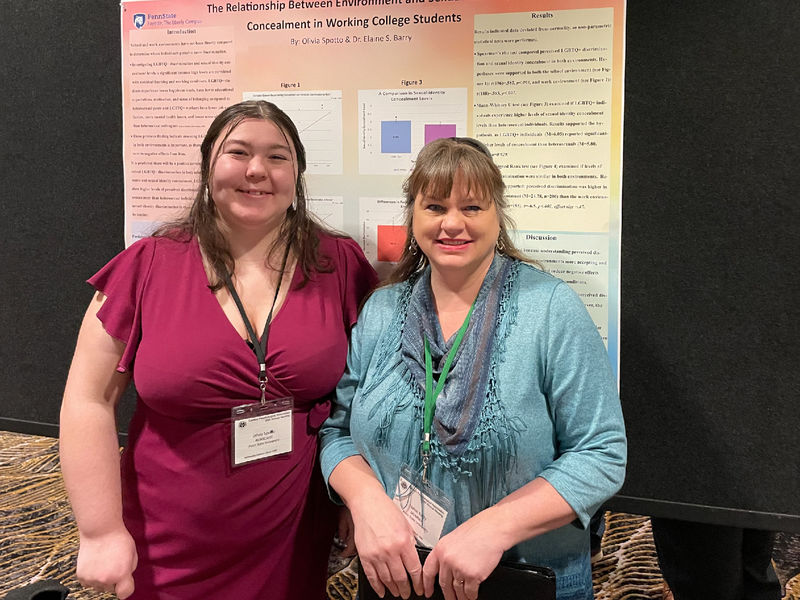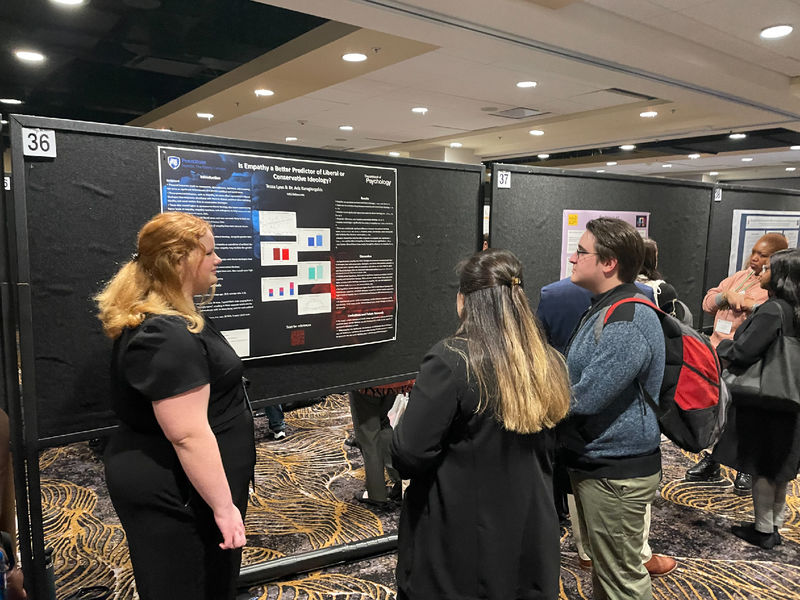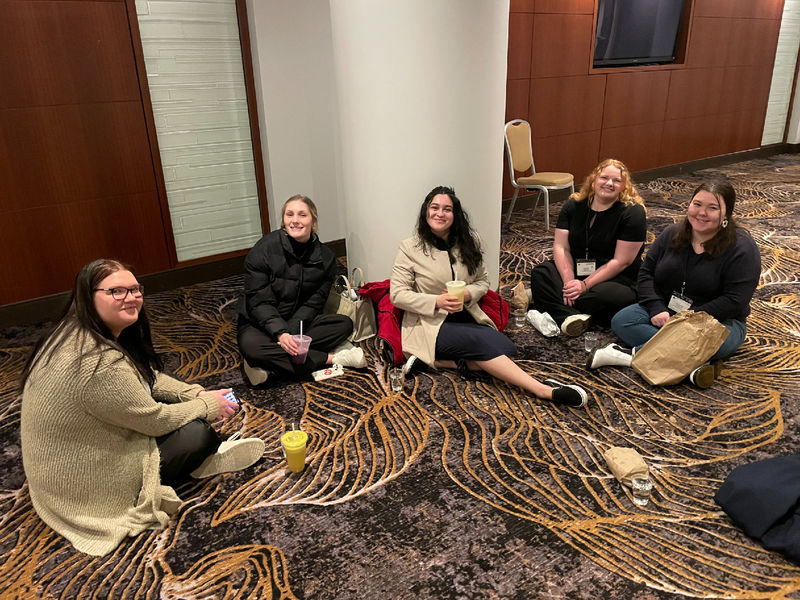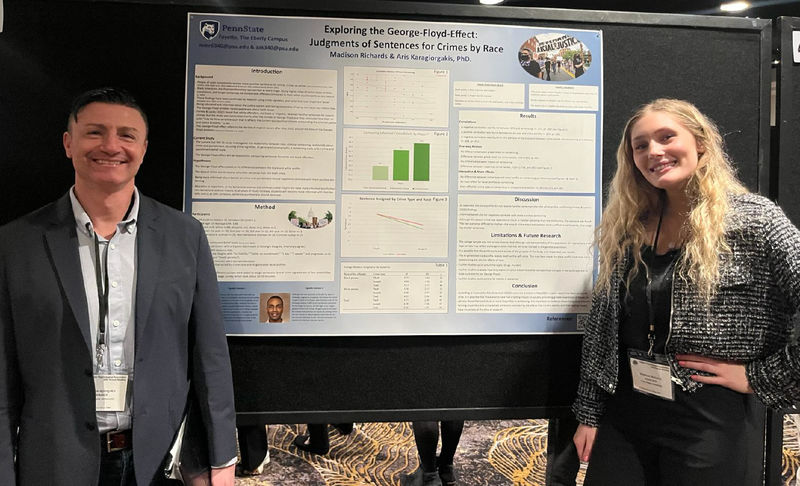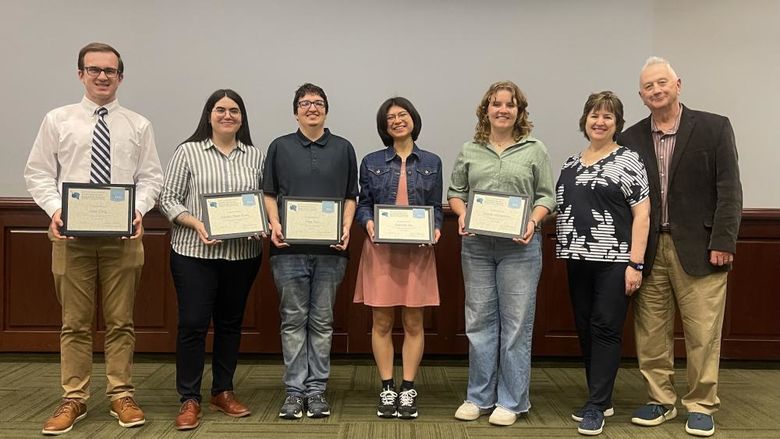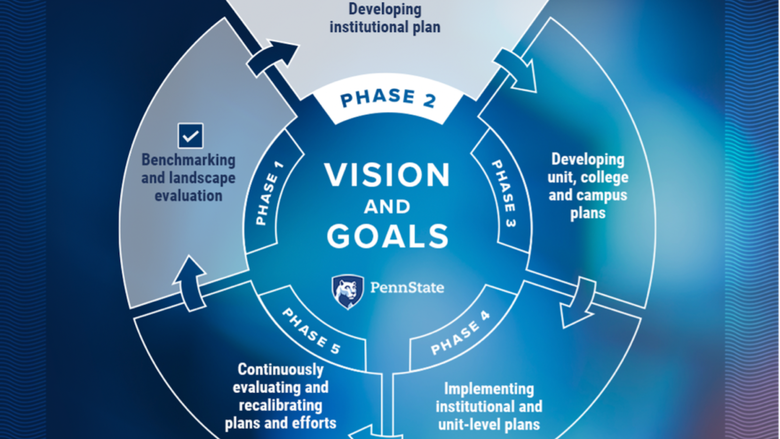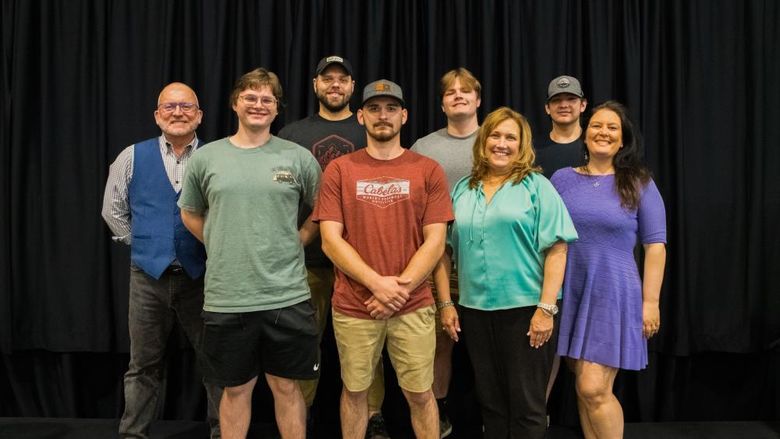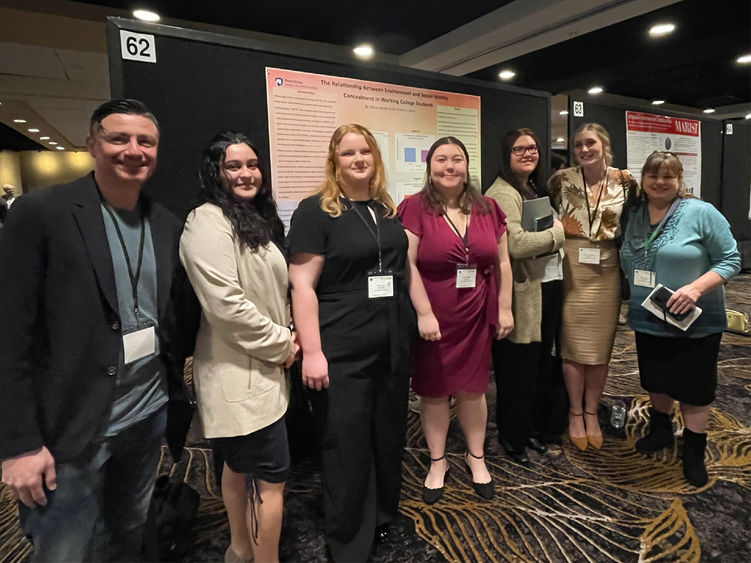
From left to right: Aris Karagiorgakis, Keyli Portillo, Tessa Lynn, Olivia Spotto, Sarah Bielawski, Madison Richards, Elaine Barry.
LEMONT FURNACE, Pa. — Five students from Penn State Fayette, The Eberly Campus, presented at the Eastern Psychological Association conference in Philadelphia on March 1. This conference is an annual gathering for psychology professionals and includes presentations, workshops and networking opportunities, focusing on the latest research and practices in psychology.
Sarah Bielawski, a fourth-year psychology major, investigated the effects of parenting styles — permissive, authoritative, authoritarian — on children's self-regulation and academic performance.
“I had hypothesized that authoritative parenting would yield better self-regulation,” Bielawski said.
Contrary to her expectations, she found permissive parenting to yield better results.
“Maybe it has to do with how people interpret lenient parenting," Bielawski said. "Although not perfect — children might make bad decisions for themselves — they’re independent. This goes against how an authoritative parent raises their children. Once older, their children might be so used to having rules that they don’t have independence for themselves."
Tessa Lynn, a fourth-year psychology major, said she hoped to evaluate if an individual’s empathy is a predictor of liberal or conservative ideology.
“We wanted to see how prosocial behavior can predict someone’s political ideology, and that led us to investigate empathy," Lynn said. "For example, much of our research looked at who liberals and conservatives feel empathy towards. We measured each participant’s response and collected information like gender, age, grade point average, and found that on our campus there was a positive correlation between liberals and empathy while no significant correlation existed between conservatives."
Madison Richards, a fourth-year psychology major, sought to determine if student peers assigned harsher sentences to criminal offenders based on the latter’s racial identity. Instead of using a person’s actual photo, Richards used artificial intelligence to generate images of the offenders, ensuring that no real individuals were implicated or used without consent.
“We found that students didn’t assign racially biased sentences,” Richards said. “This might have something to do with the George Floyd effect: a decrease in people’s racial biases brought on by Floyd’s death.”
Keyli Portillo, a fourth-year psychology and criminal justice major, explored the relationship between an individual’s traditional gender role beliefs, their religious behavior and their knowledge of sexual violence facts.
“My idea was that people who come from a traditional home probably aren’t as informed in said home about sex and violence," Portillo said. "Through my research, I found that those who possessed traditional gender role beliefs were also less informed on sexual violence."
Olivia Spotto, a fourth-year psychology major, assessed the relationship between an environment and the concealment of sexual identity in working college students.
“Last summer, I surveyed all of Penn State’s campuses and gave students a questionnaire on perceived discrimination and sexual identity concealment," Spotto said. "I wanted to see if they perceived the workplace or school as more discriminant. Shockingly, results found that they considered school to be worse off."
Aris Karagiorgakis, associate teaching professor of psychology, co-authored the research of Bielawski, Lynn, Richards and Portillo. Elaine Barry, associate professor of human development and family studies, co-authored the research of Olivia Spotto.
Presenting at the conference, students said they navigated their initial nervousness and found their place within the academic community, their early apprehensions giving way to a sense of accomplishment and belonging.
“It was just pure excitement when I had learned we were accepted to present at the conference,” Lynn said. “It was an awesome experience and felt so validating.”
It was just pure excitement when I had learned we were accepted to present at the conference. It was an awesome experience and felt so validating.—Tessa Lynn , fourth-year psychology major
